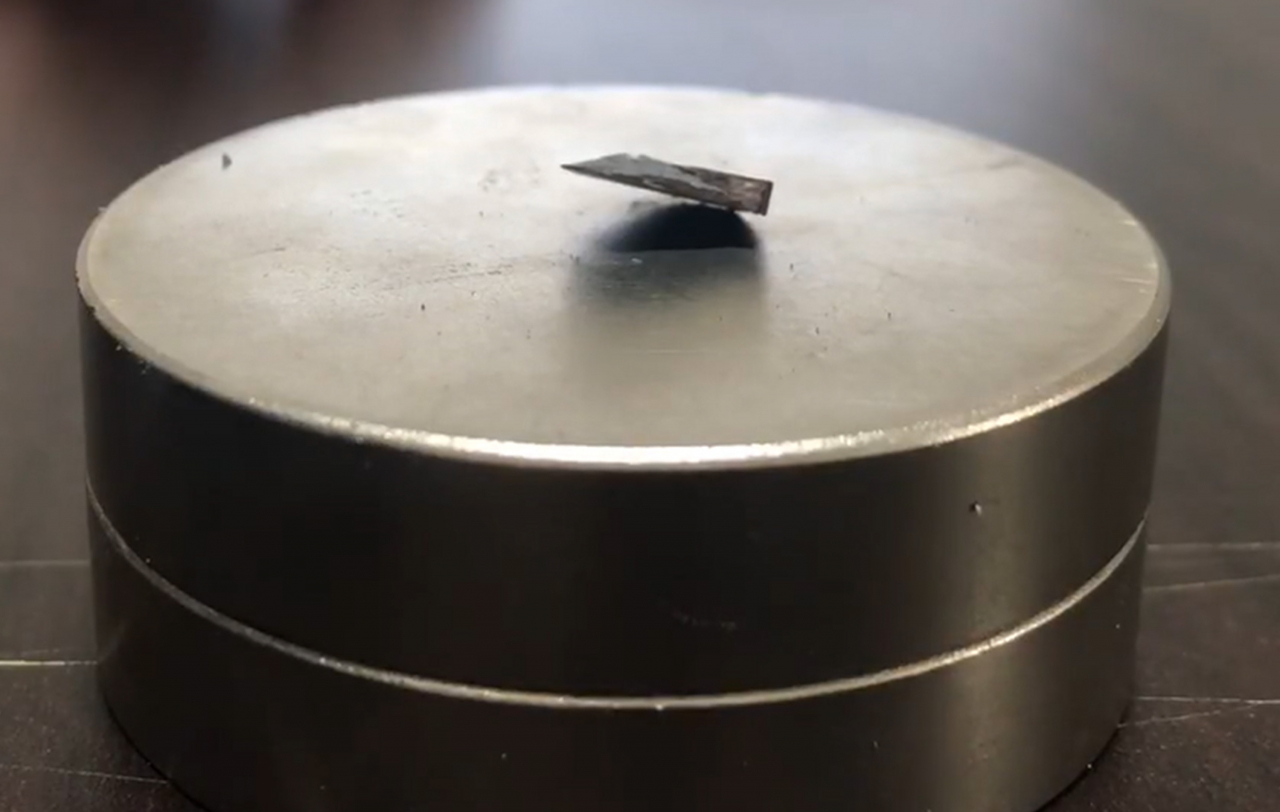
Skepticism among scientists has been deepening in the past few days over a Korean research team’s discovery of the room-temperature superconductor known as LK-99, after a slew of replication efforts have fallen short.
The University of Maryland’s Condensed Matter Theory Center on Tuesday said on the social media platform X, formerly Twitter, “With a great deal of sadness, we now believe that the game is over. LK-99 is not a superconductor, not even at room temperatures or at very low temperatures,” adding that it is a very highly resistive, poor quality material.
It cited results from the India-based CSIR-National Physical Laboratory and the International Center for Quantum Materials in China, which both uploaded on the open-access preprint repository arXiv that the synthesized LK-99 samples do not show signs of superconductivity.
Joint research posted on the same day by institutes including the Schoop Lab of Princeton University in the US, Max Planck Institute for Chemical Physics of Solids in Germany and Spain-based Ikerbasque concluded that the LK-99 sample, which could more likely be a magnet, reveals a multiphase material that does not exhibit high-temperature superconductivity.
Science, one of the world’s top academic journals, published a news article headlined, “The short, spectacular life of that viral room-temperature superconductivity claim,” on Tuesday. Michael Norman, a theorist at Argonne National Laboratory cited by Science, blasted the Korean authors as “amateurs,” adding that they did not know much about superconductivity and that their presentation of some of the data was "fishy."
A series of replication efforts worldwide came after a group of Korean researchers claimed to have developed a room-temperature superconductor -- one of the holy grails of physics -- creating much buzz online.
The research team, headed by Quantum Energy Research Center CEO Lee Suk-bae, said LK-99 exhibited the Meissner Effect -- the phenomenon of zero electrical resistance and the expulsion of magnetic fields -- at ambient pressure and temperatures above 127 degrees Celsius.
In the past, scientists have identified superconducting materials, but they have only shown zero electrical resistance at ultracold temperatures and mostly at extremely high pressure. These prerequisites have limited their possibilities to drastically improve energy efficiency in actual applications, pushing researchers to search for a room-temperature superconductor for decades.
Experts say despite the failed replication attempts, it is worth waiting for additional replication processes and updated data from the Korean team.
“Foreign science institutes could have left out some steps from the experiment process suggested by the Korean researchers or the recipe itself could be inaccurate,” said Jeon Dae-young, an electric engineering professor at Gyeongsang National University.
“The Korean Society of Superconductivity and Cryogenics, who will be receiving the superconductor sample from the team, might be able to verify the validity of the sample, recipe and the overall experiment,” Jeon added.
The KSSC, which had been doubtful of the superconductivity of LK-99, said on Aug. 4 that it plans to set up a committee consisting of 30 experts in the field to verify the superconductor claim. It will also receive the samples from the Quantum Energy Research Center by the end of August.
With mounting skepticism, investor frenzy for superconductor-related stocks that had pushed up prices seems to be dialing down.
On Tuesday, shares of SuNam listed on the tech-heavy Kosdaq plunged 29.98 percent from the previous trading day to 8,830 won ($6.70). It then stood at 6,900 won at Thursday's closing bell. Duksung, which is listed on the main bourse Kospi, saw a 29.41 percent drop to 8,400 won between Tuesday and Wednesday, and traded at 8,030 won on Thursday.



















